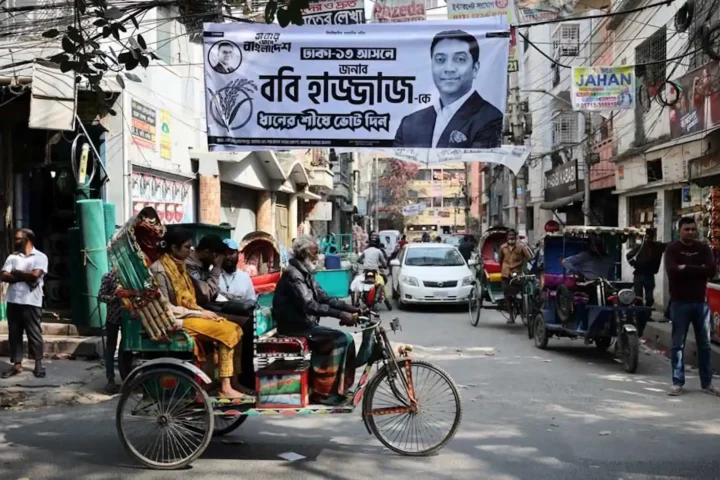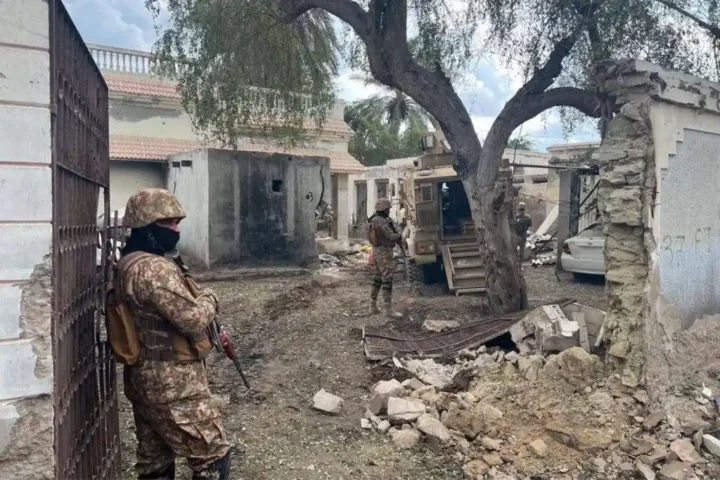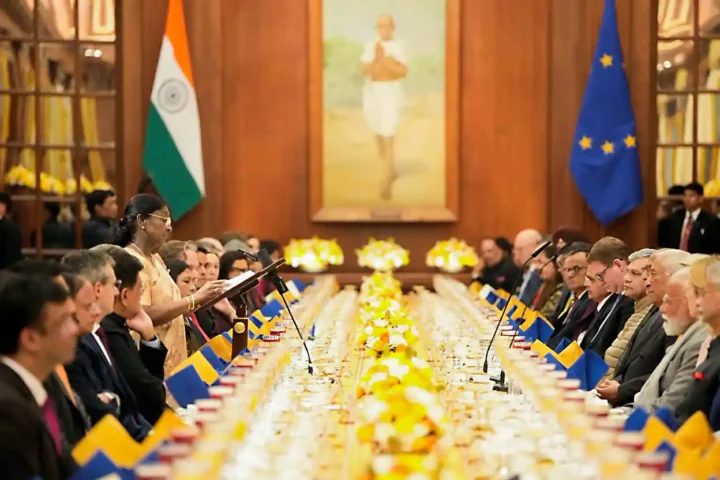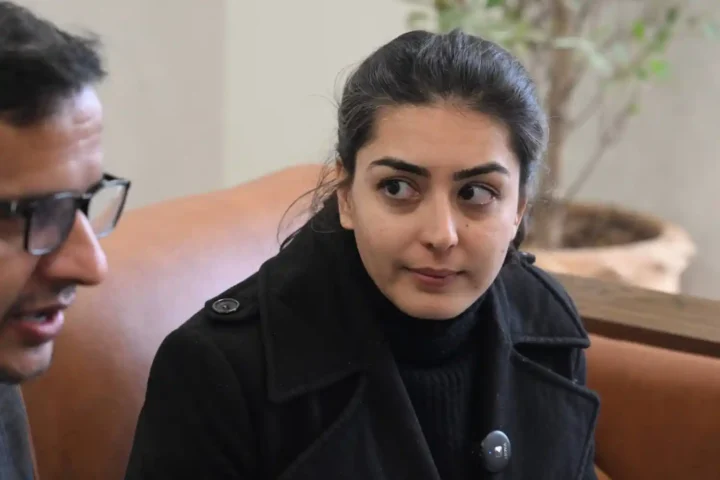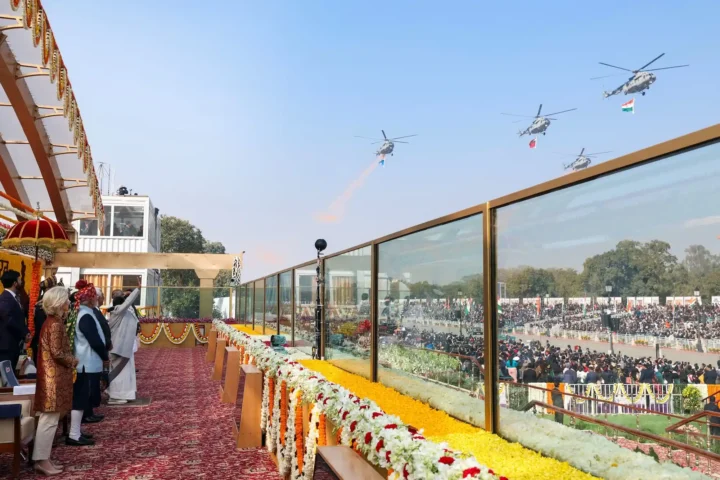Just last week, the United Nations human rights experts issued an unusually sharp rebuke to Pakistan, expressing that they were “shocked at reports of increasing violence against vulnerable communities on grounds of their religion or belief.” Their statement, published on July 24, carried the weight of decades of frustration. “Pakistan must break the pattern of impunity that has allowed perpetrators to act without restraint,” the UN panel urged, calling for immediate investigations, prosecutions, and reforms to protect the country’s religious minorities.
Independent @UN_SPExperts on #Pakistan 🇵🇰:
— United Nations Geneva (@UNGeneva) July 24, 2025
“We are shocked at reports of increasing violence against vulnerable communities on grounds of their religion or belief. Pakistan must break the pattern of impunity that has allowed perpetrators to act without restraint.“ pic.twitter.com/ZtFu3UHg30
The statement was the latest in a chorus of international condemnations that have done little to slow an increasingly brutal and systematic campaign of discrimination. Pakistan’s minority communities—Ahmadiyya Muslims, Christians, Hindus, and Shi’a Muslims—find themselves not merely neglected but actively targeted, often with state complicity. Amnesty International, in its latest country report, called this “systemic repression.” Human Rights Watch went further, labeling blasphemy-related violence in 2025 as “intensified terror against communities who have nowhere to turn.”
For many Pakistanis, this crisis is woven into the fabric of daily life. For the rest of the world, it is a story of moral urgency—and of international failure.
The Anatomy of Persecution
A Climate of Fear, Sanctioned by the State
The violence is neither sporadic nor random. The UN report accused Pakistani authorities of “tacit official complicity,” arguing that law enforcement’s habitual refusal to intervene had emboldened extremists. “The cycle of fear,” the experts warned, “prevents both people and institutions from upholding the rights and dignity of these minorities.”
No community feels this more acutely than the Ahmadis. Constitutionally declared non-Muslim in 1974, Ahmadis are barred by law from identifying as Muslims, publicly practicing their faith, or referring to their places of worship as mosques. In 2024 alone, Human Rights Watch recorded multiple incidents of Ahmadi mosques being desecrated, cemeteries vandalized, and religious literature burned. Graveyards are routinely defiled; even in death, Ahmadis are not spared.

The state’s role in enforcing this exclusion is explicit. Ahmadi voters remain on separate electoral rolls. Their religious sites are routinely shuttered by police, and blasphemy charges—often fabricated—lead to detentions, disappearances, and, increasingly, extrajudicial killings.
Blasphemy Laws: Pakistan’s Legal Weapon Against Dissent
The cornerstone of this persecution lies in Pakistan’s blasphemy laws, which impose the death penalty for derogatory remarks about Islam or the Prophet Muhammad. Though no executions have taken place under these laws, Human Rights Watch reported that vigilante killings surged in 2024, with “mobs killing at least four people accused of blasphemy,” including an elderly Christian, Nasir Masih, who was lynched in May 2025. Arrests were made in his case, but authorities quickly released the suspects, reinforcing, in the words of the UN panel, “a pattern of impunity.”

Christians, who make up roughly 1.6 percent of Pakistan’s population, are especially vulnerable. Blasphemy allegations are often motivated by personal vendettas or land disputes, forcing entire communities to flee. Once abandoned, their homes and businesses are seized by others, rarely restored.
The blasphemy laws have become, in effect, a mechanism of ethnic cleansing, argues the US Commission on International Religious Freedom (USCIRF), which has repeatedly recommended designating Pakistan a “Country of Particular Concern.” The Commission’s 2025 report highlighted how “religious minority communities—particularly Christians, Hindus, and Shi’a and Ahmadiyya Muslims—continued to bear the brunt of prosecutions under Pakistan’s strict blasphemy law.”
The Gendered Dimension of Persecution
For minority women, persecution is often gendered and brutal. Human Rights Watch and Amnesty International have documented cases of women detained under fabricated blasphemy charges and subjected to sexual violence in custody. Forced conversions and marriages are a long-standing crisis: Hindu, Christian, and Sikh girls—some as young as twelve—are abducted, forcibly converted to Islam, and married to their captors.
In a UK Parliamentary debate earlier this year, lawmakers called these practices a “serious abuse of human rights that robs women and girls of the right to choose their own future.” Letters from the UK Foreign Office to lawmakers, including Lord Alton of Liverpool, describe ongoing diplomatic engagement with Pakistan over forced marriages and abductions, but little has changed on the ground.
2 important replies from @HFalconerMP Minister for Pakistan about persecution of Sikh,Christian & Hindu minorities-including forced marriages & conversions & the troubling situation in Parachinar. UK aid must champion minorities & FoRB. @APPGFoRB @APPGPakMin @JavaidRehman pic.twitter.com/hjZdgkK1NB
— Lord (David) Alton (@DavidAltonHL) July 23, 2025
The Legal Architecture of Exclusion
A Constitution That Disenfranchises
The Pakistani constitution itself enshrines discrimination. Ahmadis are officially classified as non-Muslims and barred from using Islamic terminology. Electoral laws segregate them onto separate voting lists, effectively silencing their political voice. Christians, Hindus, and Sikhs are often excluded from government jobs and face systemic bias in education and housing.
“Many are relegated to low-paying jobs like sanitation work and live in neglected neighborhoods lacking basic utilities,” reports Amnesty International. Temples, churches, and gurdwaras are routinely vandalized or occupied illegally. Media coverage of these abuses is minimal, with state regulators frequently censoring minority voices.
The International Outcry—and Its Limits
The UN has been unambiguous in its criticism. Its July 2025 statement urged Pakistan to repeal blasphemy laws, prosecute perpetrators, and guarantee the safety of religious sites. Amnesty International echoed this, calling for “immediate remedial measures to ensure a sense of safety and security, particularly to the Ahmadiyya community.”
NEW: Pakistan’s blasphemy laws perpetuate religious discrimination and are used to target the poor and minorities in unlawful evictions and land grabs. These accusations have had devastating consequences for those affected. https://t.co/gdaLqwdGis pic.twitter.com/dpSzV2AiiB
— Human Rights Watch (@hrw) June 9, 2025
USCIRF’s recommendations have been equally clear: suspend aid or apply diplomatic pressure until Pakistan demonstrates progress. Yet Western governments have been cautious, wary of destabilizing a key regional ally.
The UK and US have repeatedly linked aid and bilateral engagement to human rights progress. In the UK Parliament, lawmakers have condemned “widespread evidence of the state actively supporting discrimination,” particularly through blasphemy laws. The US State Department, under pressure from USCIRF and Congress, has debated stronger sanctions but stopped short of labeling Pakistan a “Country of Particular Concern,” a designation that carries trade and aid consequences.

Some incremental progress has been achieved through Western-backed civil society initiatives that provide legal aid to victims and document abuses. But without structural reform, these efforts remain band-aids on a deep wound.
Stories of Violence: Recent Cases
The names of victims tell their own story. Nasir Masih, a 70-year-old Christian lynched in Punjab, symbolizes the dangers of mere accusation. In Sindh, at least three Hindu girls were reported abducted and forced into marriage this year, according to Western media and local activists. Dozens of Ahmadi mosques have been demolished or sealed by police, while cemeteries continue to be desecrated with impunity.

Legal harassment is pervasive. The Dawn newspaper has documented cases where minors and women with disabilities are charged under blasphemy laws and left to languish in pre-trial detention for years.
In #Pakistan, an underage #Hindu girl, Komal Meghwar, from Tando Allahyar, Sindh, was Kidnapped, Rape, forcibly converted to Islam at Madina Masjid, Mirpurkhas.
— Faraz Pervaiz (@FarazPervaiz3) June 21, 2025
Religious minorities are not safe in Pakistan. pic.twitter.com/9E0CdK9V5X
The Cycle of Impunity
Impunity remains the central enabler of this crisis. “Perpetrators are seldom brought to justice, even after international outcry,” notes Amnesty International. Arrests, when they occur, rarely lead to convictions. This failure emboldens extremists and erodes public faith in the justice system, deepening Pakistan’s social fractures.
What Needs to Change?
The consensus among international experts is clear: repeal blasphemy laws, prosecute perpetrators, and ensure equality before the law. But structural change is unlikely without sustained international pressure. Western governments must go beyond symbolic condemnations, linking aid and trade agreements to verifiable reforms.

Civil society initiatives—interfaith dialogues, legal aid networks, and grassroots activism—offer hope, but they need robust international support and protection.
The Moral Imperative
Pakistan’s persecution of religious minorities is not just a domestic crisis; it is a moral test for the international community. The UN, Amnesty International, Human Rights Watch, and countless activists have documented this pattern of abuse for decades. Yet, as of 2025, the cycle of violence remains unbroken.
If Western governments and global institutions fail to act decisively, the message to Pakistan’s minorities is chillingly clear: they are on their own.
The words of the UN panel should haunt policymakers: “Pakistan must break the pattern of impunity.” Until it does, millions of its citizens will remain trapped in a system that punishes difference and rewards hate—an affront not just to Pakistan’s constitution but to the very idea of human dignity.
References and Further Reading
- UN Human Rights Experts Press Release (July 24, 2025)
- United Nations Office of the High Commissioner for Human Rights (OHCHR) press release reporting on violence against minorities (especially Ahmadis), and urging Pakistan to end discrimination.
- URL: https://www.ohchr.org/en/press-releases/2024/07/pakistan-experts-urge-immediate-end-discrimination-and-violence-against
- Dawn Newspaper Article, July 16, 2025
- Reporting Islamabad High Court’s order to form a commission to investigate misuse of blasphemy laws in Pakistan, court concerns over disappearances in blasphemy-related cases.
- URL: https://www.dawn.com/news/1923351/sindh-human-rights-commission-says-blasphemy-laws-must-not-be-used-to-settle-scores
- Dawn Newspaper Article, July 24, 2025
- Coverage of Islamabad High Court’s suspension of previous order for a blasphemy law commission—contextual reporting on blasphemy law misuse, mob violence, and legal challenges.
- URL: https://www.dawn.com/news/1924524
- Human Rights Watch, World Report 2025/Pakistan Section
- Annual report with focus on blasphemy violence, mob killings, and accountability failures in Pakistan.
- URL: https://www.hrw.org/world-report/2025/country-chapters/pakistan
- US Commission on International Religious Freedom (USCIRF) 2025 Annual Report
- Reporting on the treatment of religious minorities in Pakistan, recommendation to designate Pakistan a “Country of Particular Concern.”
- URL: https://www.uscirf.gov/reports/annual-report-2025
- UK Parliament/Foreign, Commonwealth & Development Office (FCDO) Letters
- Official correspondence from UK Minister Hamish Falconer and FCDO to Lord Alton, referencing forced marriage, religious persecution, and human rights advocacy.
- (Please note: images attached in your chat—these are not available as public URLs but are official FCDO documents.)
- Amnesty International Reporting: Ahmadis and Blasphemy Laws
- Analysis of systemic persecution of Ahmadis and demands for reform of blasphemy laws.
- URL: https://www.amnesty.org/en/location/asia-and-the-pacific/south-asia/pakistan/report-pakistan/


